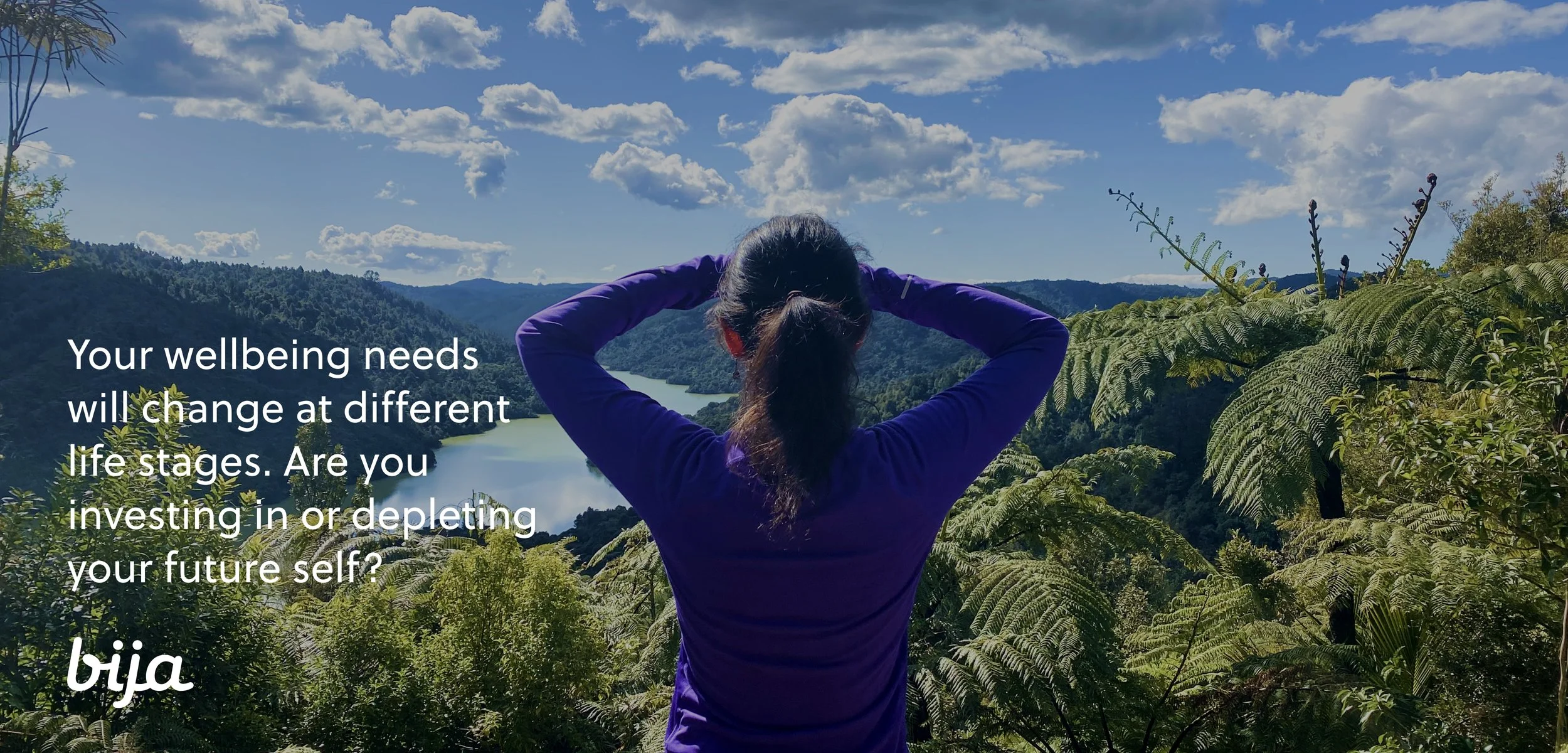Wellbeing at different stages of life
Recently, I've been hearing about friends dear to me, older in age, facing mostly physical health challenges. We are primed to expect a certain level of physical decline as we get older, and for the most part, we take steps to try to ensure we maintain a certain level of health as we get older, but accidents and injuries happen. Nobody is immune to mishaps. For some, getting older is riddled with health issues and conditions, for others, it’s where they really find their groove and thrive. It got me thinking about our relationship with wellbeing at different life stages. By wellbeing, I refer to an integrated approach encompassing all aspects of our existence - physical, mental, emotional, social, financial, occupational, and spiritual.
Wellbeing strategies vary across different ages
What your wellbeing looks like when you are in your 20s and just starting out on your career path would look very different to when you are in your late 50s. So much of you and your life will have changed. Your goals, dreams and focus will shift. Your living or home environment will be different. The mental or emotional challenges you face are different. Your financial situation - different. How you connect with yourself or spirituality. The relationships you have and communities that you are part of. Maybe you will even have moved countries. Your priorities and needs when you have just finished college or university and are looking for your first job are different to if you have just had your first child. And again, will be different if you are the sandwich generation - looking after kids on one side and ailing parents on the other. If you are launching a new business or trying to maintain and stabilise your business in challenging financial times - your wellbeing needs and work-life balance will be different too. What if you have received a scary health diagnosis and need to reevaluate your life and make changes? Your approach and strategies for your wellbeing need to be reappraised and adapted with you throughout your life.
It may seem obvious, but often we overlook reflecting on how our wellbeing needs and priorities shift throughout life. You can land up approaching new challenges in ways that are irrelevant or inappropriate to your current physical or mental self. Maybe you are stuck in a habitual pattern of self-neglect or denial. This means there can be a disconnect between what you expect from yourself and your reality.
Return to what brings you joy and good health
This is a common observation in my foundation yoga classes. A new student comes in, explains they haven’t done yoga for 30 years, and as the class progresses, they are surprised or disappointed that they can’t do what they used to do all those years ago. The physical and mental version of themselves those 30 years ago is not the person who is showing up for class now. I’m sure this rings true for anything - whether you pick up a tennis racket after not playing for decades or put on your running shoes. Now, I’m not saying that if you have been in a cycle of neglect that you shouldn’t return to activities, hobbies or interests that you used to love. But rather, if you do, lower your expectation of yourself and be curious about the changes you experience. Go for the joy of returning to the thing, not the accomplishment of it. If your pattern has been one of neglect - be honest with yourself about that. When you decide to shift your focus back to looking after yourself - assess really where you are, what would be appropriate, realistic and supportive for your wellbeing journey.
Seek the support you need
Since your wellbeing encompasses more than just your physical self - maybe you need social or emotional support at a specific stage of your life. Assess where you are in life and what it is you need. Be open to what you find. I never thought of myself as a support group type of person, I don’t like sharing personal things with strangers but when my mother was diagnosed with Alzheimers, it quickly became apparent that I had absolutely no clue how to deal with the situation. I reached out to Dementia Auckland out looking for information and support. I joined their support group for daughters who are dealing with someone who has Dementia, it has been a total game changer. It has been so supportive and helpful for my mental and emotional wellbeing as I travel this rollercoaster journey. If you had told me I would do this a few years ago, I might not have believed you, but today I am so grateful that I took action to seek the support I needed. .
Wellbeing: an ever-evolving state
Your wellbeing should evolve with you as you go through life. It's common to get stuck in auto-pilot, repeating or neglecting the same patterns or habits. As the year winds down, it's a great time to reflect on your year and your wellbeing journey. Remember to be kind to yourself, these past years have been challenging for everyone's wellbeing.
To age with health, vitality, love, support, and financial security, ask yourself - “What daily decisions am I making to ensure a fulfilling future? Am I investing in or depleting my future self?”. Even if your answer is negative, you can change your path at any time.
I can help you discover your path of wellbeing.
Reach out for a discovery call and start your journey to overcome busy-ness and find balance.

